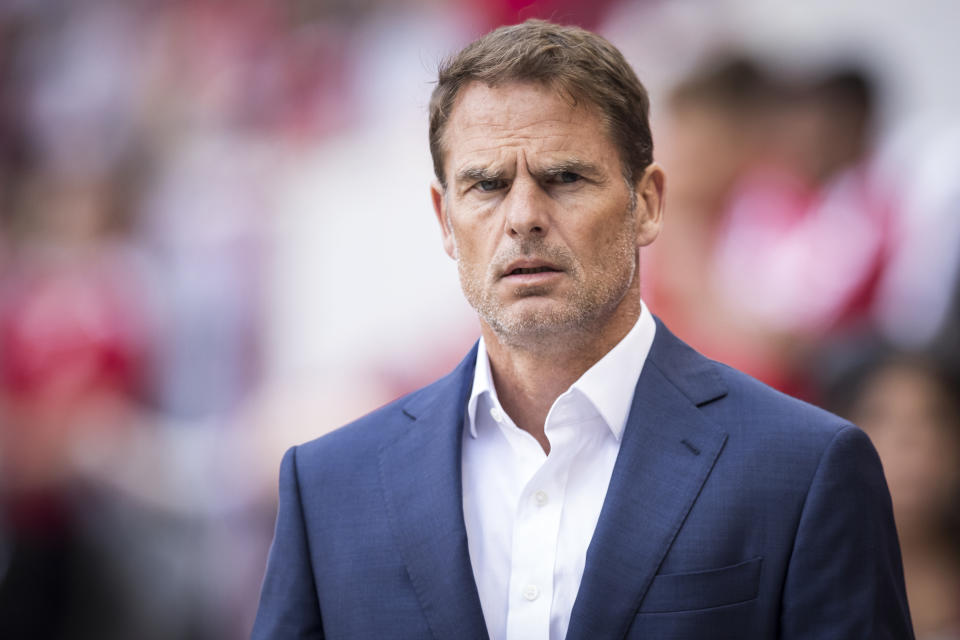Atlanta United coach Frank de Boer calls equal pay in soccer 'ridiculous'

The 2019 Women’s World Cup final involved two teams with which Atlanta United coach Frank de Boer is incredibly familiar: the United States and his native Netherlands.
It also pitted two teams at the forefront of the equal pay fight. The Netherlands reached an agreement for equal pay with its federation ahead of the tournament. The USWNT agreed to go to mediation with U.S. Soccer in its pursuit of equal pay and better treatment.
It’s all “ridiculous,” de Boer told The Guardian.
Equal pay in soccer, tennis ‘ridiculous’
The Dutch women’s team will receive gradually increased pay until 2023, when its earnings will equal that of the men’s team. The situation cited by Dutch players is similar to the USWNT’s case: While the men’s team has had trouble qualifying for recent tournaments, the women’s team is nearly winning it all.
De Boer played for the Netherlands at the 1994 and 1998 men's World Cups and told the Guardian he doesn’t believe the policy of equal pay, whether in soccer or tennis, is fair given popularity, income and advertising money.
“I think for me, it’s ridiculous. It’s the same like tennis. If there are watching, for the World Cup final, 500 million people or something like that, and 100 million for a women’s final, that’s a difference. So it’s not the same. And of course they have to be paid what they deserve to [earn] and not less, just what they really deserve. If it’s just as popular as the men, they will get it, because the income and the advertising will go into that. But it’s not like that, so why do they have to earn the same? I think it’s ridiculous. I don’t understand that.”
Tennis players have achieved equal pay at big events mainly because Grand Slams pool the major sources of revenue together for men and women. It helps that they play at the same time.
The 2019 World Cup final drew 20 percent more viewers in the U.S. than the men’s final in 2018. (The USMNT did not play in the World Cup last year.) The 2015 Women’s World Cup final is still the most-watched soccer match ever on U.S. English language TV.
How did calls for equal pay begin?
De Boer, who took over Atlanta in December 2018, told The Guardian he thinks the fight for equal pay in the sporting world is a reaction to issues of men being paid more in the business world for equal work.
“I think it started because a woman [was] getting underpaid, especially at [managerial] positions,” he says. “They have to earn the same as a man. I think if you have a manager position for a bank or something, you have to earn the same what the men did because it’s not physically, just only here [points to head], so why do you have to earn less, because you’re doing the same job as a man? I think that’s also dropped a little bit into the sports world, like tennis and soccer. But I think that’s still different.”
De Boer doesn’t go far into it, but presents a clear distinction between equal pay for mental work and not believing there is equal physical work being done by men and women on the pitch.
The gender pay gap is widely argued and publicized. Reports estimate that in 2019 women only make approximately $0.79 for every dollar men make. It is worse for women of color and varies widely by state. Women reportedly receive smaller bonuses and matching 401(k) contributions, according to Forbes, which escalate the problem.
Legislation has been introduced to get the women’s team equal pay and the USMNT issued a statement of support for the USWNT. U.S. Soccer has hired two lobbying firms to argue the team is not underpaid.
More from Yahoo Sports:

 Yahoo Finance
Yahoo Finance 